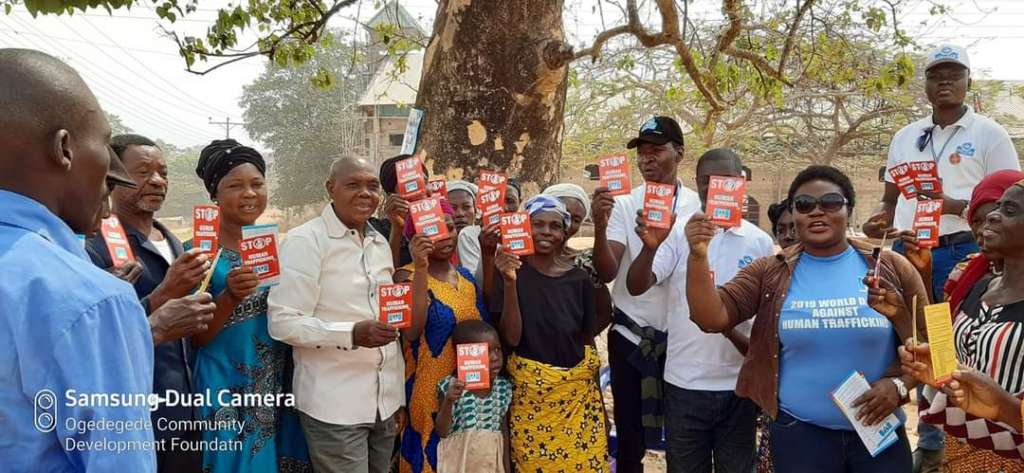By Lillian Okenwa
“Litigants who decide to take up their cases have to travel between 5 and 7 hours to the state capital in Makurdi or another 5 to 7 hours to the large city of Otukpo which has a High Court Division in search of justice.” – Michael Awo Ejeh
Access to justice remains the most basic human rights in any sane and civilised society. In Nigeria, women and children are the worst hit with the over-stretched justice system showing significant signs of strain.
Oju and Obi Local Government Areas of Benue State boast of a very large population and landmass, yet there is no State High Court Division situated in either of the two Local Governments.
Recent research shows that rape was the most prevalent form of Sexual Gender-Based Violence (SGBV) in Nigeria, with about 11,200 rape cases recorded by the National Human Rights Commission (NHRC) in 2020. However, child trafficking, gender-based violence (GBV), and sexual offences continue to thrive in Igede community of Benue State. The people of Oju and Obi Local Government comprise of the Igede tribe though some Igedes live in Cross River State.

The absence of a High Court in the areas has made justice elusive for thousands of aggrieved people who decide to take laws into their hands. Land disputes, communal disputes, threats to life, trafficking of children, rape, armed robbery, and homicides cases are usually frustrated because of the absence of high courts. Litigants who decide to take up their cases have to travel between 5 and 7 hours to the state capital in Makurdi or another 5 to 7 hours to the large city of Otukpo which has a High Court Division in search of justice.
Distressed by the locals’ inability to access justice over the years, the rising cases of trafficking, domestic and sexual violence, an Abuja lawyer and founder of Ogedegede Community Development Foundation (OCDF), a non-governmental organisation (NGO) Barrister Michael Awo Ejeh has called on relevant stakeholders to act quickly before the situation gets out of hand.
Ejeh who is also seeking to end Child breadwinners and exploitative labour in Igedeland noted that: “Women and Children who are victims of domestic violence and sexual violence suffer a great deal because they do not have money to travel such long distances with their witnesses or transport the Police and suspect to these distant courts. Many of them cannot even get the approval of their families to seek justice in court for purposes of family honour. Justice is elusive in Igede land.
While underage girls are victims of trafficking in the communities, investigations reveal that trafficking of male children in Igede is worsened by an age-long traditional practice called Okwurumi which according to Ejeh, it is a socio-cultural issue that a whole lot of people don’t like to talk about.
According to Ejeh, “Igede is a very remote community where there are no basic amenities like hospitals or social recreation centres. We don’t even have things that could make the youths desire to stay back at home.”
Speaking from his experience in dealing with the menace, the Makurdi Zonal Commander of National Agency for Prohibition of Trafficking in Persons (NAPTIP), Aganran Ganiu Alao, said: “At the beginning of planting season, people come in and take able-bodied men from the state to the South West, specifically to Lagos and Osun states, purposely for farming. In the course of taking them away, there is an intermediary who we call trolley.
“These intermediaries benefit from the labour of these victims in the sense that a certain percentage of what is due to the victims is also given to them. To us, exploitation has taken place there. Assuming they are supposed to pay those people N10,000 per month, the intermediary will be there to get N2,000 or N3,000 from that money every month.
“The victims are always paid at the end of the year. They work from January to December when the bulk of the money is paid. At the end of the day, there is a shortage because the go-between will get a certain amount from that money. When that happens, they come to us crying that they have been exploited. That is when we come in to intercept them. Purely, it is labour exploitation.”
The practice, he said, is synonymous with labour exploitation which is against NAPTIP law. And though child trafficking is most prevalent in Igede, the Zonal Commander said “almost all the 17 local government areas in Benue State are endemic to trafficking…. We go as far as Kwande, Zaki Biam, and as far as Guma in Nasarawa axis. Most of those areas are endemic to trafficking. That is what we are witnessing now, and it is on the rise.”
bOkygGzHwdS